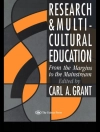The post–World War II idea of the Axial Age by Karl Jaspers, and as elaborated into the sociology of axial civilizations by S. N. Eisenstadt in the later twentieth and early twenty-first centuries, continues to be the subject of intense scholarly debate. Examples of this can be found in recent works of Hans Joas and Jürgen Habermas. In
From World Religions to Axial Civilizations and Beyond, an internationally distinguished group of scholars discuss, advance, and criticize the Jaspers-Eisenstadt thesis, and go beyond it by bringing in the critical influence of Max Weber’s sociology of world religions and by exploring intercivilizational encounters in key world regions. The essays within this volume are of unusual interest for their original analysis of relatively neglected civilizational zones, especially Islam and the Islamicate civilization and the Byzantine civilization, and its continuation in Orthodox Russia.
Table of Content
About
Pangaea II: Global /Local Studies
Introduction: From World Religions to Axial Civilizations and Beyond
Saïd Amir Arjomand and Stephen Kalberg
1. World Religions, Civilizations, and the Axial Age
Björn Wittrock
2. Ideas
and Interests: From Weber’s
Protestant Ethic to the Later Writings on the Sociology of Religion
Stephen Kalberg
3. Karl Jaspers on Paradigmatic Individuals: A Complement to His Concept of the Axial Age and a Subtype of Weber’s Concept of Charisma
Victor Lidz
4. Shadows of Forgotten Ancestors: Some Forerunners and Followers of Max Weber’s Protestant Ethic Thesis in France and Brazil
Roberto Motta
5. Images of Natural Order and Rulership by Measure, Number, and Weight, in the Hellenistic‑Roman Era: A Study of Intercivilizational Encounters
Donald A. Nielsen
6. The Pioneers of Islamicate Civilizational Analysis
Saïd Amir Arjomand
7. More (or Less) than a Civilizational ‘Formation’? Islam as the ‘Black Hole’ of Comparative Civilizational Analysis
Armando Salvatore
8. The Reception of Axial Age Legacies: Christianization and the Byzantinization of Russia
Yulia Prozorova
9. The Forgotten Earth: Nature, World Religions, and Worldlessness in the Legacy of the Axial Age/Moral Revolution
Eugene Halton
Conclusion
Saïd Amir Arjomand
Contributors
Index
About the author
Saïd Amir Arjomand is Distinguished Professor of Sociology Emeritus at Stony Book University, State University of New York.
Stephen Kalberg is Professor of Sociology Emeritus, Boston University.












